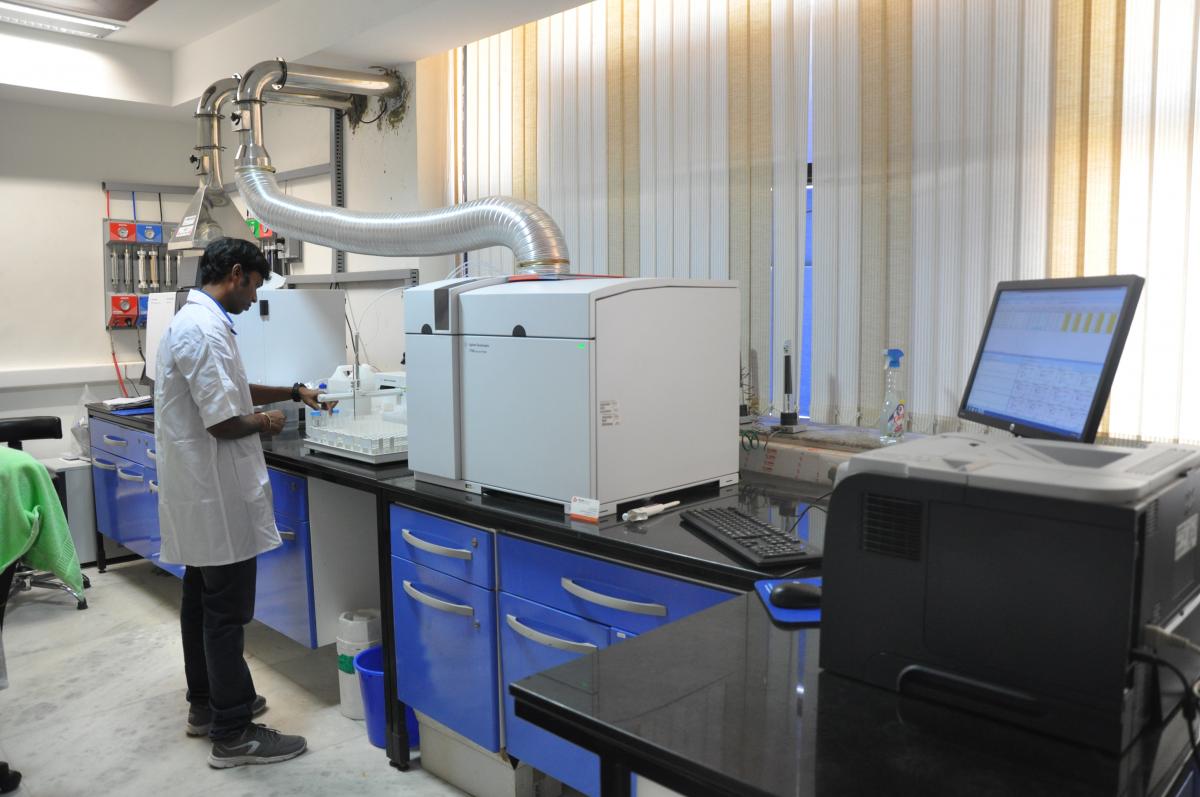Inductively Coupled Plasma Mass Spectrometry (ICP-MS)
Instrument Details:
Make : Agilent Technologies
Model: 7700 Series ICP-MS
Specification:
New ORS3 Collision/Reaction Cell
- X Longer, narrower rods, higher cell pressure and frequency – MUCH better performance in He mode
New RF Generator
- Fast tuning 27MHz generator, for better tolerance to changing matrix (incl. organics)
Increased Matrix Tolerance X
- High Matrix Introduction (HMI) standard on 7700x model Much smaller cabinet
- >30% smaller footprint than any other ICP‐MS Simple software; reliable Auto‐Tuning
- MassHunter software – intuitive and easy to learn. Pre‐set plasma conditions and fast lens auto‐tuning
Working Principles:
Inductively coupled plasma mass spectrometry (ICPMS) is an analytical instrument used for elemental determination. The sampled material is introduced into high-energy argon plasma that consists of electrons and positively charged argon ion. In the plasma, the material is split into individual atoms. These atoms will lose electrons and become (singly) charged positive ions. To allow their identification, the elemental ions produced in the plasma (ICP) must be transferred from 7000 K to room temperature and from atmospheric pressure to high vacuum. To do so, the ions are extracted through a number of apertures. Besides ions also photons are produced in the plasma.
User Instructions:
- There should be minimum 5 samples with at least 3 elements in each sample for analysis
- Biological and non-biological samples can analyses
- In case of liquid sample minimum 25 ml is required for processing
Contact Us:
The Director, ICAR-NIASM
Email: director.niasm@icar.gov.in
Tel.: 02112 258000
Inductively Coupled Plasma Mass Spectrometer Charges:
|
S.No. |
Sample type |
Rate/per sample/ element (Rs) for ICAR |
Rate/per sample/element (Rs) for other Govt. organizations |
Rate/per sample/element (Rs) for private research organization |
Rate/per sample/element (Rs) for Industries |
|
1 |
Fish tissues |
200 |
300 |
400 |
500 |
|
2 |
Soil/water samples |
200 |
300 |
400 |
500 |
|
3. |
Plant samples |
200 |
300 |
400 |
500 |
|
4. |
Blood samples |
200 |
300 |
400 |
500 |
|
+ GST as applicable |
|||||
|
Note*-There should be minimum 5 samples with at least 3 elements in each sample for analysis |
|||||

